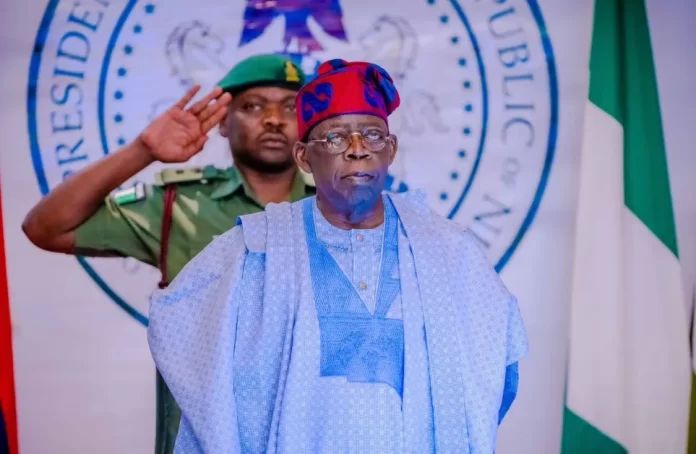On Monday, May 29, 2023, President Bola Ahmed Tinubu and Vice President, Kashim Shettima took over the administration of Nigeria from former President Muhammadu Buhari and Yemi Osinbajo respectively.
Here are the highlights of Tinubu’s Presidency since he assumed office on Monday, May 29, 2023.
On Monday, May 29, 2023, President Bola Ahmed Tinubu and Vice President, Kashim Shettima took over the administration of Nigeria from former President Muhammadu Buhari and Yemi Osinbajo respectively.
The President has, in the last 100 days, made several appointments and policy decisions to actualize his Renewed Hope promises to Nigerians.
Beyond the appointments, here are the highlights of Tinubu’s presidency since he assumed office.
The Inauguration Speech
President Tinubu’s inauguration speech shortly after his swearing-in ceremony on Monday, May 29, 2023, was his first episode of controversy as his statement on fuel subsidy removal unsettled Nigerians.
Even though Nigerians were aware of his position on fuel subsidy before his assumption of office, the President’s declaration that ‘fuel subsidy is gone’ sparked reactions as fuel prices immediately soared from ₦185 to over ₦500 across the country.
The President would later admit that he went off script when he announced fuel subsidy removal in his inaugural address to Nigerians.
National Address
Amid the economic challenges occasioned by fuel subsidy removal, President Tinubu addressed the nation on the evening of July 31, 2023, to appease the people.
As Nigerians groaned and complained about the state of the economy, Tinubu in his second national broadcast explained why he decided to do away with fuel subsidy and the multiple exchange rate system.
Read more: Your first look at Funke Akindele’s ‘A Tribe Called Judah’
He explained that he ended the fuel subsidy regime, which cost Nigeria trillions of naira yearly, to prevent the money from going into the deep pockets and lavish bank accounts of a select group of individuals.
He therefore promised to ensure the money spent on the scheme would be used to facilitate public transportation, healthcare, schools, housing, and even national security instead.
Ministerial Appointments
Given his perceived level of preparedness, Nigerians had thought President Tinubu would immediately appoint and assign ministers to their duty posts on his assumption of office, but instead, he kept the President kept Nigerians waiting for his ministerial list for over 50 days.
Eventually, on July 31, 2023, the Senate President, Godswill Akpabio announced the list of 28 ministerial nominees the upper chamber received from the President.
The screening of the nominees went on for days and in the end, 45 out of the 48 nominees were sworn-in as ministers.
Inauguration of Ministers
On Monday, August 21, 2023, President Tinubu inaugurated his new ministers and charged them to serve the country with diligence and integrity.
Addressing the ministers shortly after they took their oaths of office, Tinubu urged them to return public faith in government because Nigerians expected them to deliver.
ECOWAS Chairmanship and Niger Crisis
At the 63rd Ordinary Session of the Authority of Heads of State and Government on Sunday in Guinea-Bissau, President Tinubu emerged as the new Chairman of the Economic Community of West African States (ECOWAS) in July.
Two weeks after he assumed leadership of the bloc, democracy fell apart in Niger as military officers seized power in the West African country.
The development unsettled the ECOWAS leadership with Tinubu leading other West African leaders to restore democracy in Niger.
Emefiele and Bawa’s Suspension
Barely two weeks into his administration, President Tinubu suspended the Governor of the Central Bank of Nigeria, Godwin Emefiele.
His suspension according to a statement by Willie Bassey, the Director of Information at the office of the Secretary to the Government of the Federation, was due to the “ongoing investigation of his office and the planned reforms in the economy’s financial sector.”
Five days later, Tinubu’s axe fell on Abdulrasheed Bawa, the Chairman of the Economic and Financial Crimes Commission (EFCC).
In a terse statement by the Office of the Secretary to the Government of the Federation (SGF), Bawa’s suspension resulted from “weighty allegations of abuse of office leveled against him.”














